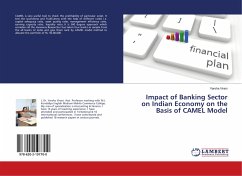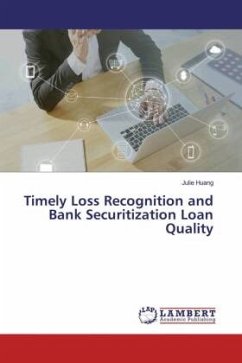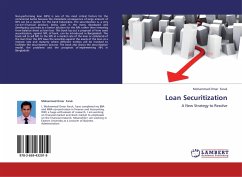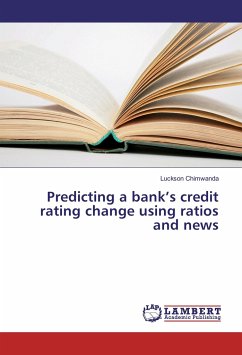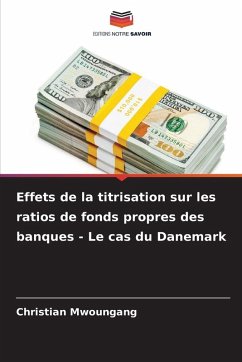
Effects of Securitization on Banks Capital Ratios - Case of Denmark
Securitization, Risks and Capital Ratios
Versandkostenfrei!
Versandfertig in 6-10 Tagen
36,99 €
inkl. MwSt.

PAYBACK Punkte
18 °P sammeln!
The 2 last decades have been characterized by the collapse of many financial institutions around the world. A large number of bankruptcies have been recorded mainly from 1988 to 1992. The major cause of serious banking problems continues to be directly related to "lax credit standards" for borrowers and counter parties, poor portfolio risk management, or a lack of attention to changes in economic or other circumstances that can lead to deterioration in the credit standing of a bank's counter parties. This experience is common in both G-10 and non-G-10 countries. Advanced industrial countries a...
The 2 last decades have been characterized by the collapse of many financial institutions around the world. A large number of bankruptcies have been recorded mainly from 1988 to 1992. The major cause of serious banking problems continues to be directly related to "lax credit standards" for borrowers and counter parties, poor portfolio risk management, or a lack of attention to changes in economic or other circumstances that can lead to deterioration in the credit standing of a bank's counter parties. This experience is common in both G-10 and non-G-10 countries. Advanced industrial countries around the world had good reasons to rethink their banking regulations in recent years. The primary objective of the research is to analyze in depth the different aspects of the Basel accords for banking regulations related to risks facing banks in Denmark.



